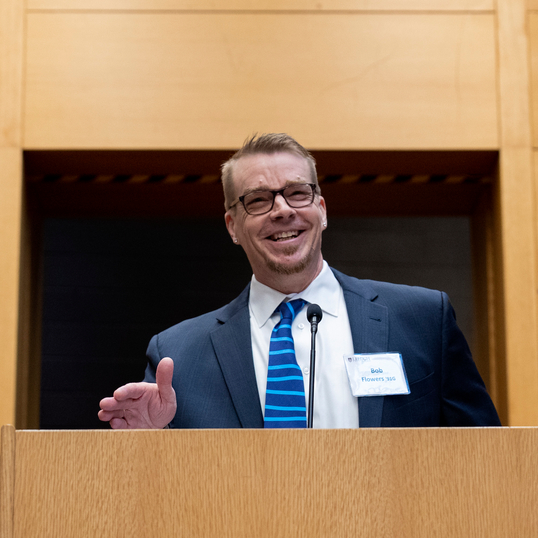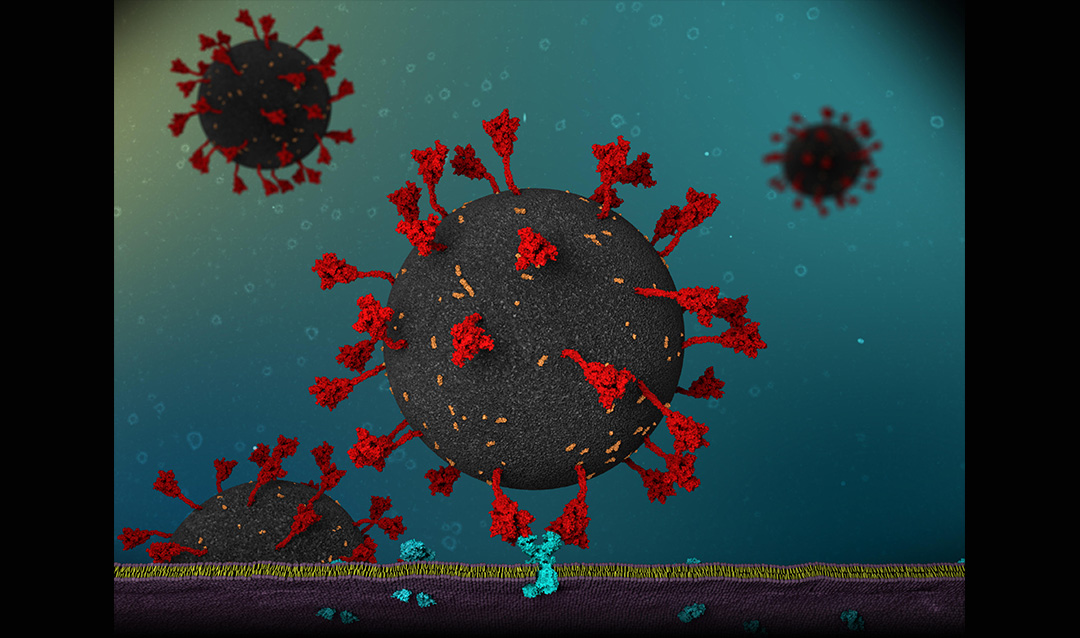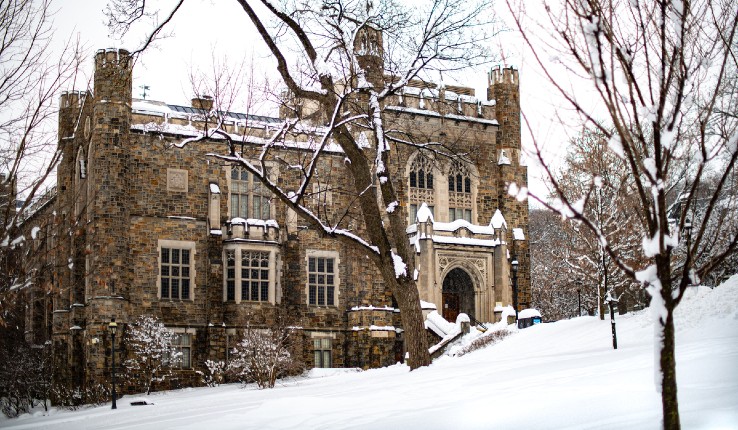In an ongoing effort to maintain the quality and rigor of the Lehigh academic experience, faculty are taking steps to improve and expand upon the online learning experience for students, should the COVID-19 pandemic continue to disrupt education, the deans of Lehigh’s colleges say.
Flexibility, Preparation Key to Innovative Online Instruction
Lehigh’s administrators and faculty strive to maintain the quality and rigor of the Lehigh academic experience.

Robert Flowers, the Herbert J. and Ann L. Siegel Dean of the College of Arts and Sciences
Robert Flowers, the Herbert J. and Ann L. Siegel Dean of the College of Arts and Sciences, says he’s been proud of how faculty and students responded to the challenge presented by a mid-semester shift to online instruction. The College will continue to use faculty and student feedback to maximize success if students must continue learning from home.
A recognition of the varying needs, resources and challenges of individual students will play a significant part in planning, Flowers says. Additionally, flexibility will be key.
“I think the thing that comes through regardless of the approach used is that different approaches work for different classes, but flexibility for students was critical [this past semester],” Flowers explains. “In larger classes, students tended to prefer an asynchronous approach where lectures were provided in advance and students could use class time to ask questions and work problems. In smaller classes, students generally preferred discussions. Another point students have made is that they preferred flexibility in office hours and the ability to drop in for appointments. Students really appreciated faculty who could accommodate their needs in this way.”
The College will support faculty in their efforts to develop asynchronous approaches to coursework and will provide resources and guidance to help with course design and potentially alternative forms of assessment of student learning, Flowers says. The College also is considering how it might deploy resources differently so that students can get the interaction and feedback they need throughout the semester.

College of Education Dean William Gaudelli
“Given the diverse range of class offerings in CAS, we recognize that there isn’t a one-size-fits-all approach, so we intend to provide support for the range of classes, both large and small, to do our best to effectively meet the educational needs of our students and faculty colleagues,” he says.
At the College of Education, Dean William Gaudelli says a “three-pronged approach” is in place to support all faculty as they work to optimize sources for an online format. First, the College will be hosting a one-day intensive workshop geared toward summer course revamps.
Following that, there will be a five-week flipped workshop where faculty will be invited to investigate possible ways to revise and improve their work, he says. Finally, the College will engage in a six-week period of instructional design for which faculty will be assigned an instructional coach. These coaches, Gaudelli says, will guide faculty “in making the student-facing experience top-notch.”

Georgette Phillips, the Kevin L. and Lisa A. Clayton Dean of the College of Business
“We hope to create exemplars out of this process and, most importantly, improve on the already high-mark of quality that we have achieved,” he says.
A similar process will take place at the College of Business, says Georgette Phillips, the Kevin L. and Lisa A. Clayton Dean. In an early May meeting with all College faculty, Phillips said the shared feeling among the faculty was that efforts must be made to go far beyond what would have been considered the standard for online learning pre-COVID-19.
“We have been teaching online for years now, and we’re pretty good at it,” Phillips says. “But that’s always been the side dish, not the main course. So what we need to recognize is that for the time being, this format is the core, the main course, and our student’s main college experience.
“So we can’t just say that whatever we were doing before is what we can do going forward. We have to stop thinking about online education as something that we’re doing ‘for now.’ So we’re taking the things we’ve learned this semester, carry them forward, and bring them into the classroom in a really interesting way.”




